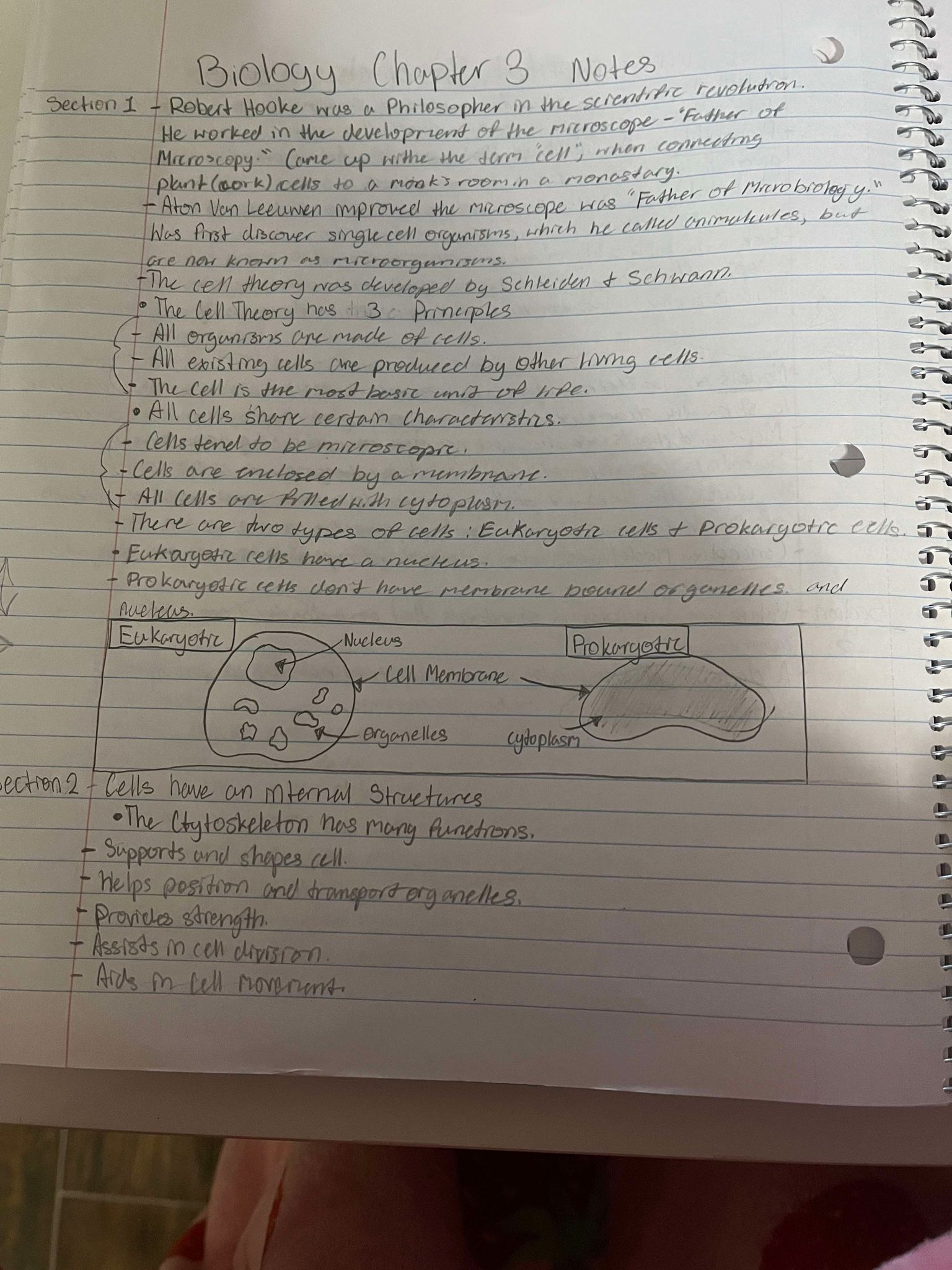
Understand the Problem
The content in the image provides notes on Chapter 3 of a biology textbook, discussing the development of microscopy, the cell theory, and the structures of cells. It outlines the contributions of scientists like Robert Hooke and Anton van Leeuwenhoek, and explains the differences between prokaryotic and eukaryotic cells, as well as details about the cytoskeleton's functions.
Answer
Schleiden & Schwann developed the cell theory with three principles: all organisms are made of cells, existing cells come from other living cells, and cells are the basic unit of life.
The cell theory was developed by Schleiden and Schwann and consists of three principles: all organisms are made of cells, existing cells are produced by other living cells, and cells are the basic unit of life.
Answer for screen readers
The cell theory was developed by Schleiden and Schwann and consists of three principles: all organisms are made of cells, existing cells are produced by other living cells, and cells are the basic unit of life.
More Information
Schleiden and Schwann formulated the cell theory in the 1830s, laying the foundation for modern biology by emphasizing the fundamental role of cells in the structure and function of all living organisms.
Tips
Remember to distinguish between contributions made to cell theory by different scientists: Hooke coined the term 'cell,' Leeuwenhoek discovered microorganisms, and Schleiden and Schwann developed the cell theory.